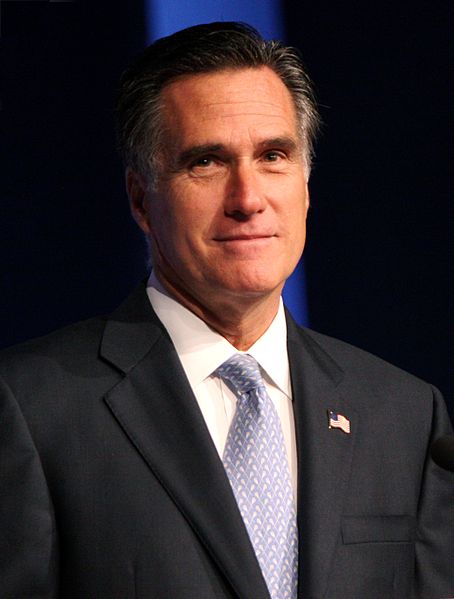Republican nominee for President Mitt Romney gave what was supposed to be a major speech on foreign policy on Monday, arguing that President Obama has not shown “leadership” and that “nowhere is this more evident than in the Middle East. ”
 But Romney’s speech was persistently vague, relying on rhetoric and mostly shying away from specific policy prescriptions. On each issue, he either hinted at the need for more belligerence or argued for precisely the same policies the Obama administration has carried out, while trying to present his identical take as fundamentally different.
But Romney’s speech was persistently vague, relying on rhetoric and mostly shying away from specific policy prescriptions. On each issue, he either hinted at the need for more belligerence or argued for precisely the same policies the Obama administration has carried out, while trying to present his identical take as fundamentally different.
“I know the president hopes for a safer, freer, and a more prosperous Middle East allied with the United States,” Romney said, in an example of his commitment to keeping the speech as nebulous and unspecific as possible. “I share this hope. But hope is not a strategy.”
Romney opened by criticizing the Obama administration for its handling of the attack on the US Consulate building in Benghazi, Libya, in which four Americans died. He claimed the attack is indicative of al-Qaeda’s rise since Obama took office.
Romney didn’t mention the fact that Obama’s interventionist foreign policy – including imposing regime change in Libya, bombing Yemen and Pakistan with drones on a weekly basis, surging in Afghanistan, and continuing to prop up dictatorships across the region – is what is driving al-Qaeda’s growth. Instead, Romney’s remedy is a vague prescription of American “power,” as if it has been dormant for the last four years.
Romney tried to present Obama as passive and weak towards an evil and aggressive Iran heading towards nuclear weapons, but he failed to express a policy prescription that differed from Obama’s.
“I will put the leaders of Iran on notice that the United States and our friends and allies will prevent them from acquiring nuclear weapons capability,” he said. “I will not hesitate to impose new sanctions on Iran, and will tighten the sanctions we currently have. I will restore the permanent presence of aircraft carrier task forces in both the Eastern Mediterranean and the Gulf region-and work with Israel to increase our military assistance and coordination.”
Indeed, President Obama has said and done all of these things. He has vowed to prevent Iran from attaining nuclear weapons, he has imposed harsh economic sanctions of unprecedented severity, and he has built up ground and naval forces in the Gulf.
Romney did hint that he would give more help to domestic dissident groups in Iran who want to overthrow the regime. “When millions of Iranians took to the streets in June of 2009,” he said, “when they demanded freedom from a cruel regime that threatens the world…the American President was silent.”
The argument that the US should have used the protests in 2009 as an opportunity to impose regime change in Iran is a tired trope at this point. The protesters were not asking for regime change or for international intervention, and any move to use the events to make war against Tehran would have ended in catastrophe.
On Syria, again, Romney tried to present himself as markedly different from the Obama administration, while simply reiterating the administration’s exact policies.
“In Syria, I will work with our partners to identify and organize those members of the opposition who share our values and ensure they obtain the arms they need to defeat Assad’s tanks, helicopters, and fighter jets,” he said. This is currently the Obama administration’s policy, as it sends non-lethal aid to the rebels and facilitates the delivery of weapons from US allies in the Gulf states like Saudi Arabia and Qatar.
Romney promised to work towards a two-state solution to the ongoing Israeli-Palestinian conflict, even though he has previously stated otherwise.
“I will recommit America to the goal of a democratic, prosperous Palestinian state living side by side in peace and security with the Jewish state of Israel,” he said. “On this vital issue, the President has failed, and what should be a negotiation process has devolved into a series of heated disputes at the United Nations.”
But in a leaked video, recorded surreptitiously, Romney told a private party a few months ago that he had problems with a Palestinian state “living side by side” with Israel. He objected to the so-called two state solution, because of “thorny questions” about Israeli security in an independent West Bank.
Even more dramatically contradictory, Romney said in that video that he would specifically avoid attempting to solve the long-standing dispute. He said he would “move things along” as best he could, while recognizing that “this is going to remain an unsolved problem” that we can “live with.”


